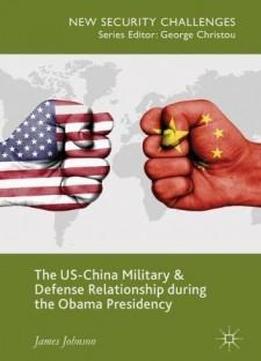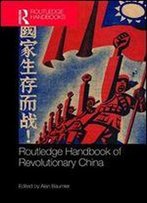
The Us-china Military And Defense Relationship During The Obama Presidency (new Security Challenges)
by James Johnson /
2018 / English / PDF
2.4 MB Download
This book offers a timely and compelling explanation for the
deterioration of U.S.-China security relations during the Obama
Presidency. The U.S.-China relationship has become one of (if not
the most) vital features of contemporary world politics, and with
arrival the Donald Trump to the White House in 2017, this vital
geopolitical relationship sits at a precarious and dangerous
crossroads. This book assesses a wide array of sources to
systematically unpack the policy rhythms, drivers, and dynamics
that defined the course of Sino-American security relations during
the Obama-era. It fills several gaps in the literature on
international security and conflict and offers a nuanced and
innovative comparative approach to examine individual military
domains. The case study chapters draw on recent Chinese and English
sources - on military doctrine, capabilities, and defense strategy
- to build a clear understanding the main sources of U.S.-China
misperceptions, and highlight the problems these assessments can
create for the conduct of statecraft across strategically
competitive geopolitical dyads. The book builds a sobering picture
of U.S.-China relations that will appeal to specialists and
generalists alike with an interest in future warfare, emerging
military-technologies, military studies, arms control, and foreign
policy issues in the Asia-Pacific region more broadly.
This book offers a timely and compelling explanation for the
deterioration of U.S.-China security relations during the Obama
Presidency. The U.S.-China relationship has become one of (if not
the most) vital features of contemporary world politics, and with
arrival the Donald Trump to the White House in 2017, this vital
geopolitical relationship sits at a precarious and dangerous
crossroads. This book assesses a wide array of sources to
systematically unpack the policy rhythms, drivers, and dynamics
that defined the course of Sino-American security relations during
the Obama-era. It fills several gaps in the literature on
international security and conflict and offers a nuanced and
innovative comparative approach to examine individual military
domains. The case study chapters draw on recent Chinese and English
sources - on military doctrine, capabilities, and defense strategy
- to build a clear understanding the main sources of U.S.-China
misperceptions, and highlight the problems these assessments can
create for the conduct of statecraft across strategically
competitive geopolitical dyads. The book builds a sobering picture
of U.S.-China relations that will appeal to specialists and
generalists alike with an interest in future warfare, emerging
military-technologies, military studies, arms control, and foreign
policy issues in the Asia-Pacific region more broadly.











